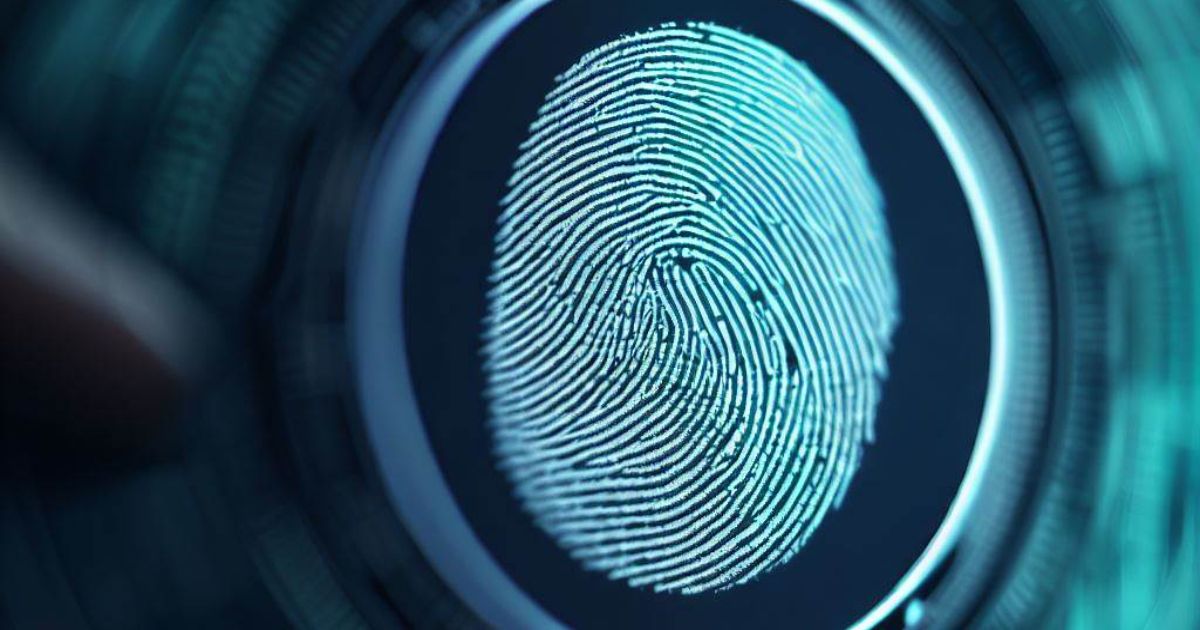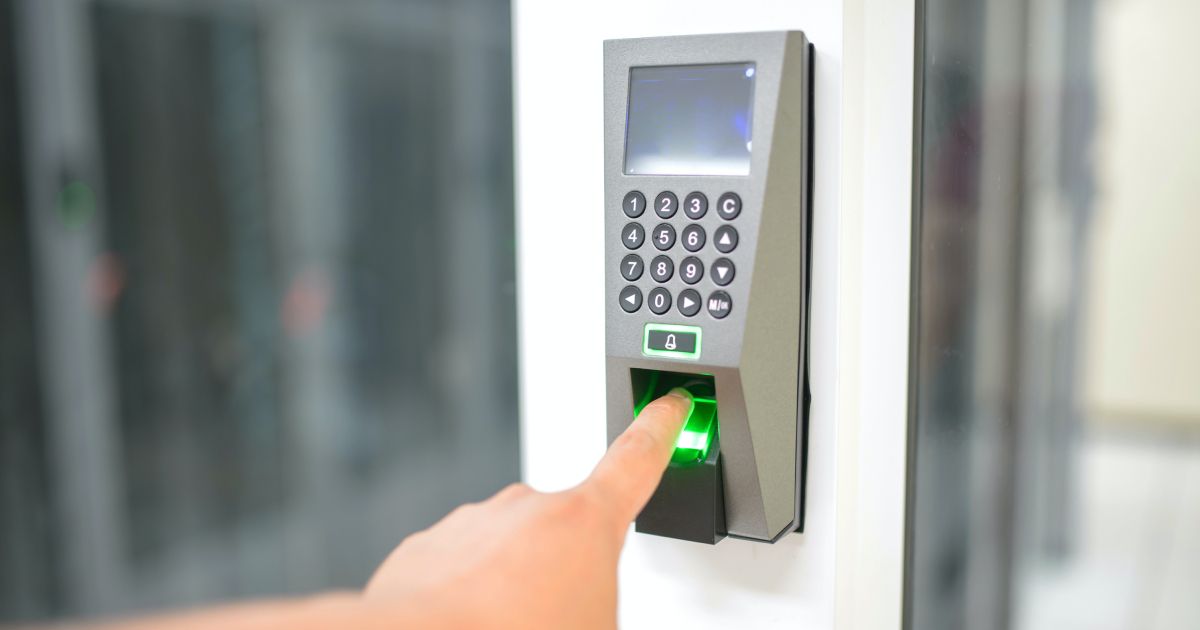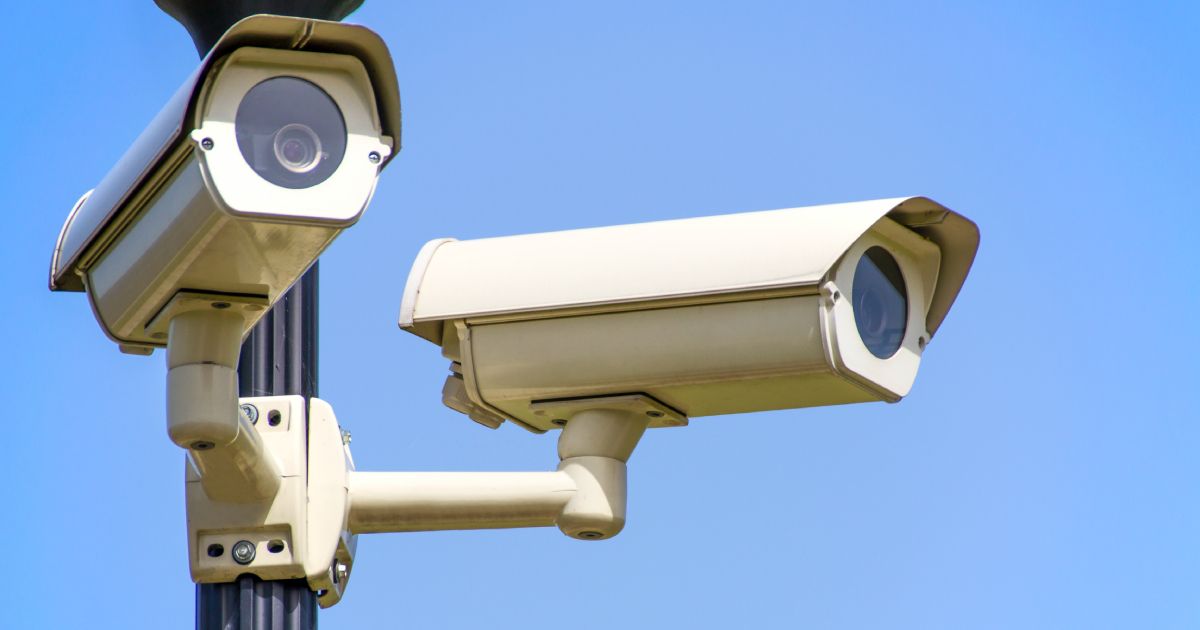Protecting Your Business with Biometric Security

As technology continues to advance, businesses are exploring innovative ways to enhance security measures and protect sensitive information.
Biometric security, a cutting-edge solution that uses unique physiological or behavioral characteristics for identification and authentication, is gaining momentum in business environments.
In this article, we will delve into the future of biometric security and its potential to revolutionize security practices in businesses.
Biometric Authentication: A New Era of Security

Traditional security measures such as passwords and access cards have limitations in terms of reliability and susceptibility to unauthorized access. Passwords can be easily compromised through hacking or social engineering techniques, especially if users choose weak passwords or reuse them across multiple accounts.
Additionally, physical access cards can be lost, stolen, or cloned, leading to potential security breaches. These traditional security methods often lack the robustness and multi-layered protection needed to combat the sophisticated cyber threats prevalent today.
To address these limitations, businesses are increasingly adopting advanced security measures such as biometric authentication, multi-factor authentication (MFA), and encryption. Biometric authentication, such as fingerprint or facial recognition, provides a higher level of security by using unique physical characteristics to verify identity. MFA adds an extra layer of protection by requiring users to provide multiple forms of authentication, such as a password and a temporary verification code sent to their mobile device. This significantly reduces the likelihood of unauthorized access, as even if one factor is compromised, the additional factors provide an additional barrier.
Furthermore, encryption plays a crucial role in securing sensitive data. By encrypting data at rest and in transit, businesses can protect it from being accessed or intercepted by unauthorized individuals. Encryption uses complex algorithms to convert data into an unreadable format, which can only be deciphered with the appropriate encryption keys. This ensures that even if data is compromised or intercepted, it remains unintelligible to unauthorized parties.
These advanced security measures provide businesses with a more robust and effective defense against modern security threats, enhancing overall security posture and protecting sensitive information.
Enhanced Security and Fraud Prevention

Biometric security systems provide an additional layer of protection against identity theft, fraud, and security breaches. Unlike traditional security measures that rely on passwords or access cards, biometric systems utilize unique physical or behavioral characteristics for authentication. This includes fingerprint recognition, facial recognition, iris scanning, voice recognition, and even behavioral biometrics such as typing patterns or gait analysis. Biometric data is difficult to replicate or forge, making it highly reliable and secure.
One of the key advantages of biometric security systems is the high level of accuracy they offer. Biometric identifiers are unique to each individual, significantly reducing the risk of impersonation or unauthorized access. The authentication process involves comparing the captured biometric data with pre-registered templates, ensuring that only authorized individuals can gain access. Additionally, biometric systems can provide real-time authentication, allowing for quick and seamless identification without the need for physical tokens or passwords. This enhances convenience for users while maintaining strong security measures.
Furthermore, biometric security systems offer improved user experience and efficiency. Users no longer need to remember complex passwords or carry physical access cards, which can be easily lost or forgotten. Biometric authentication is convenient and user-friendly, as it leverages natural human characteristics for verification. This streamlines access control processes, reduces administrative overhead, and eliminates the need for password resets or card replacements. The speed and simplicity of biometric authentication make it an attractive option for businesses looking to enhance security without sacrificing user experience.
Improved User Experience and Efficiency

Biometric security not only enhances security measures but also improves user experience and operational efficiency. By leveraging unique physical or behavioral characteristics for authentication, biometric systems provide a higher level of accuracy and reliability compared to traditional security methods. This significantly reduces the risk of identity theft, fraud, and security breaches, instilling confidence among users and stakeholders.
Here are some of the top biometric solutions:
- Veridium: Veridium is a leading provider of biometric authentication solutions that offer secure and convenient access control. Their platform uses advanced biometric technologies like fingerprint, face recognition, and behavioral biometrics to verify user identity accurately.
- BioID: BioID provides biometric authentication solutions based on face recognition technology. Their cloud-based platform offers high accuracy and reliability for identity verification and access control, making it suitable for various industries, including banking, healthcare, and government sectors.
- HID Global: HID Global offers a range of biometric security solutions, including fingerprint and facial recognition technology, for physical and logical access control. Their solutions provide robust security features, seamless integration with existing systems, and flexibility to meet the unique needs of different organizations.
One of the key advantages of biometric security is its user-friendly nature. Users no longer need to remember complex passwords or carry physical access cards, which can be lost, forgotten, or stolen. Biometric authentication leverages natural human characteristics, such as fingerprints, facial features, or voice patterns, making the authentication process more intuitive and convenient. This enhances user experience by eliminating the hassle of password resets, token management, or memorizing multiple credentials. Users can seamlessly authenticate themselves with a simple touch, scan, or voice command, resulting in quicker and smoother access to systems, facilities, or digital assets.
Moreover, biometric security systems can improve operational efficiency within organizations. The speed and accuracy of biometric authentication streamline access control processes, reducing wait times and improving overall productivity. Organizations can eliminate the administrative overhead associated with managing passwords, access cards, or tokens, resulting in cost savings and resource optimization. Biometric systems also enhance audit trails and compliance by providing a more robust and traceable record of user access, which can be valuable for regulatory requirements and internal security monitoring.
Overall, biometric security offers a holistic approach to security, delivering not only enhanced protection but also improved user experience and operational efficiency.
Integration with Emerging Technologies

Biometric security is also poised to integrate with other emerging technologies, further enhancing security measures. The combination of biometrics with technologies such as artificial intelligence (AI) and machine learning (ML) opens up new possibilities for advanced authentication and fraud detection. AI and ML algorithms can continuously learn and adapt to user behaviors, enabling biometric systems to detect anomalies and suspicious activities in real-time. This dynamic approach enhances the accuracy and reliability of biometric authentication, ensuring that only authorized individuals are granted access.
Another emerging technology that can complement biometric security is blockchain. By leveraging blockchain's decentralized and immutable nature, biometric data can be securely stored and verified, enhancing data privacy and protection. Blockchain can provide a transparent and tamper-proof record of biometric transactions, ensuring the integrity and authenticity of biometric data. This integration offers enhanced security and trust, as any attempts to tamper with biometric records would be easily detected and prevented.
Moreover, the Internet of Things (IoT) can also enhance biometric security by enabling connected devices to leverage biometric authentication. For example, smart locks or access control systems can use biometrics to grant or deny access to individuals based on their unique identifiers. This integration of biometric security with IoT devices adds an extra layer of protection to physical and digital assets, ensuring that only authorized users can interact with IoT-connected systems or devices.
Overall, the integration of biometric security with emerging technologies holds immense potential for strengthening security measures. By leveraging AI, ML, blockchain, and IoT, businesses can enhance the accuracy, reliability, and privacy of biometric authentication, providing a robust and future-proof security solution.
Addressing Privacy and Ethical Considerations

While the benefits of biometric security are significant, organizations must address privacy and ethical considerations. Biometric data, such as fingerprints or facial features, is highly personal and sensitive information. Therefore, organizations implementing biometric security measures need to prioritize the protection and responsible handling of this data. It is essential to adhere to data protection regulations and ensure that proper consent and transparency are provided to individuals whose biometric data is collected. Organizations should implement stringent security measures to prevent unauthorized access or misuse of biometric data, including encryption, access controls, and secure storage practices.
Moreover, organizations must consider the potential ethical implications of biometric security. Biometric data can be seen as a unique identifier that is closely tied to an individual's identity. This raises concerns about potential discrimination, profiling, or misuse of biometric data. Organizations should establish clear policies and guidelines for the ethical use of biometric data, ensuring that it is collected and used solely for legitimate purposes. Transparency and communication with individuals about the purpose, storage, and retention of their biometric data are crucial to build trust and maintain ethical practices.
Furthermore, organizations must be cautious about potential biases in biometric systems. Biases can occur if the systems are trained on datasets that are not diverse or representative enough, leading to inaccurate or unfair outcomes, particularly for certain demographics. To mitigate biases, organizations should implement robust data collection and validation processes, ensuring that the datasets used for training the biometric systems are diverse and inclusive. Regular auditing and monitoring of biometric systems can also help identify and rectify any biases or inaccuracies that may arise.
By addressing privacy regulations and ethical considerations, organizations can ensure that the implementation of biometric security is done in a responsible and trustworthy manner, fostering a secure environment while respecting individuals' rights and privacy.
Final Thoughts
The future of biometric security in business environments holds tremendous potential. As businesses strive to protect sensitive information and combat security threats, biometric authentication emerges as a powerful solution.
By embracing biometric security, organizations can enhance security measures, improve user experience, and stay ahead in the ever-evolving landscape of business security.
With careful implementation, integration with emerging technologies, and a commitment to privacy and ethics, biometric security is set to play a pivotal role in shaping the future of business security.







